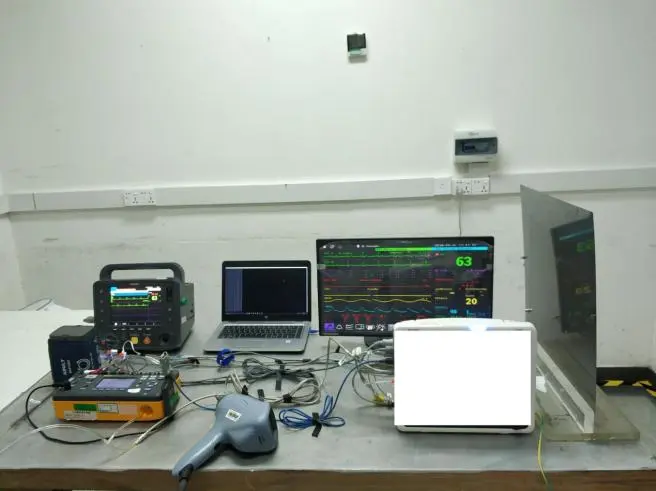
ErP Certification: The Green Pass for the EU Market
As global environmental awareness increases, various countries and regions have introduced energy efficiency regULations to promote eco-friendly product design, improve energy efficiency, and REDuce environmental pollution. For companies aiming to enter the EU market, ErP certification is a critical step.
The EU mandates that all electronic and electrical products sold in Europe must meet the requirements of ErP testing or certification (energy-related product efficiency requirements).

ErP Certification
ErP certification, or the Energy-related Products Directive (erp directive), is a regulatory requirement set by the EU to improve product energy efficiency and reduce environmental impact. The full title of the ErP Directive is the 2009/125/EC Directive, which outlines the energy efficiency and eco-design standards that products must meet to be sold in the EU market.
Key areas include:
- Energy Efficiency: Evaluating the energy consumption of products throughout their lifecycle to determine their efficiency levels.
- Lifecycle Assessment: Assessing the environmental impact of the product over its entire lifecycle, including raw material acquisition, production, use, and disposal.
- Energy Labels and Markings: Ensuring that energy labels and markings comply with EU requirements to help consumers make informed purchasing decisions.
- Energy Performance testing: Testing and verifying the product's energy performance to ensure it meets relevant energy efficiency standards.
- Energy-Saving Performance Evaluation: Assessing the product's energy-saving capabilities to determine if it meets the EU's minimum standards.
In simple terms, ErP certification requires that products reduce energy consumption and environmental impact as much as possible during their design, production, usage, and disposal phases. Only ErP-certified products can legally enter the EU market, offering consumers energy-efficient and environmentally friendly options.
Certification Process
1. Preliminary Assessment:
Companies first need to determine whether their product falls within the scope of the ErP Directive and assess whether their design and production processes meet the relevant requirements.
2. Technical Documentation:
Manufacturers must prepare detailed technical documents, including energy efficiency test reports, design evaluation reports, user manuals, etc., to prove that the product complies with the ErP Directive.
3. Energy Efficiency Testing:
Products must undergo energy efficiency testing at a professional third-party laboratory, and the results will become a key part of the technical documentation.
4. Declaration of Conformity:
After receiving satisfactory test results, companies must sign a Declaration of Conformity to demonstrate that the product meets the relevant standards.
5. Market Surveillance:
After certification, EU market regulators may conduct random inspections to ensure continued compliance with the ErP Directive.
ErP certification involves product testing to prove that the energy consumption is below the specified limit. Once passed, products can display the ce marking and be sold in the EU.
Applicable Products
- Household Appliances: Rice cookers, hairdryers, kettles, MICrowaves, induction cookers, heaters, home fans, juicers, vacuum cleaners, washing machines, water coolers, refrigerators, etc.
- Electronics: LCD TVs, VCD/DVD players, stereo systems, radios, set-top boxes, electronic instruments, multimedia burners, etc.
- Lighting Products: Energy-saving lamps, LED lights, table lamps, wall lamps, chandeliers, floor lamps, etc.
Certification Advantages
1. Legal Entry into the EU Market: ErP certification is a prerequisite for products entering the EU market. Products that fail to pass the certification will be banned from sale.
2. Enhanced Product Competitiveness: ErP-certified products generally have higher energy efficiency, providing consumers with eco-friendly options, thus boosting market competitiveness.
3. Improved Corporate Image: Complying with environmental regulations helps enhance a company’s social responsibility image, earning consumers' trust and recognition.
Email:hello@jjrlab.com
Write your message here and send it to us
 Canada ISED Certification RSS-247 Standard Testing
Canada ISED Certification RSS-247 Standard Testing
 What Are the Product Compliance for Amazon Austral
What Are the Product Compliance for Amazon Austral
 Australia IoT Security Compliance
Australia IoT Security Compliance
 V16 Warning Light EU EN 18031 Cybersecurity Certif
V16 Warning Light EU EN 18031 Cybersecurity Certif
 Japan IoT Security JC-STAR Certification
Japan IoT Security JC-STAR Certification
 FCC SDoC Compliance Information Statement
FCC SDoC Compliance Information Statement
 What Does FCC SDoC Certification Mean?
What Does FCC SDoC Certification Mean?
 What is Bisphenol A (BPA) Testing?
What is Bisphenol A (BPA) Testing?
Leave us a message
24-hour online customer service at any time to respond, so that you worry!




